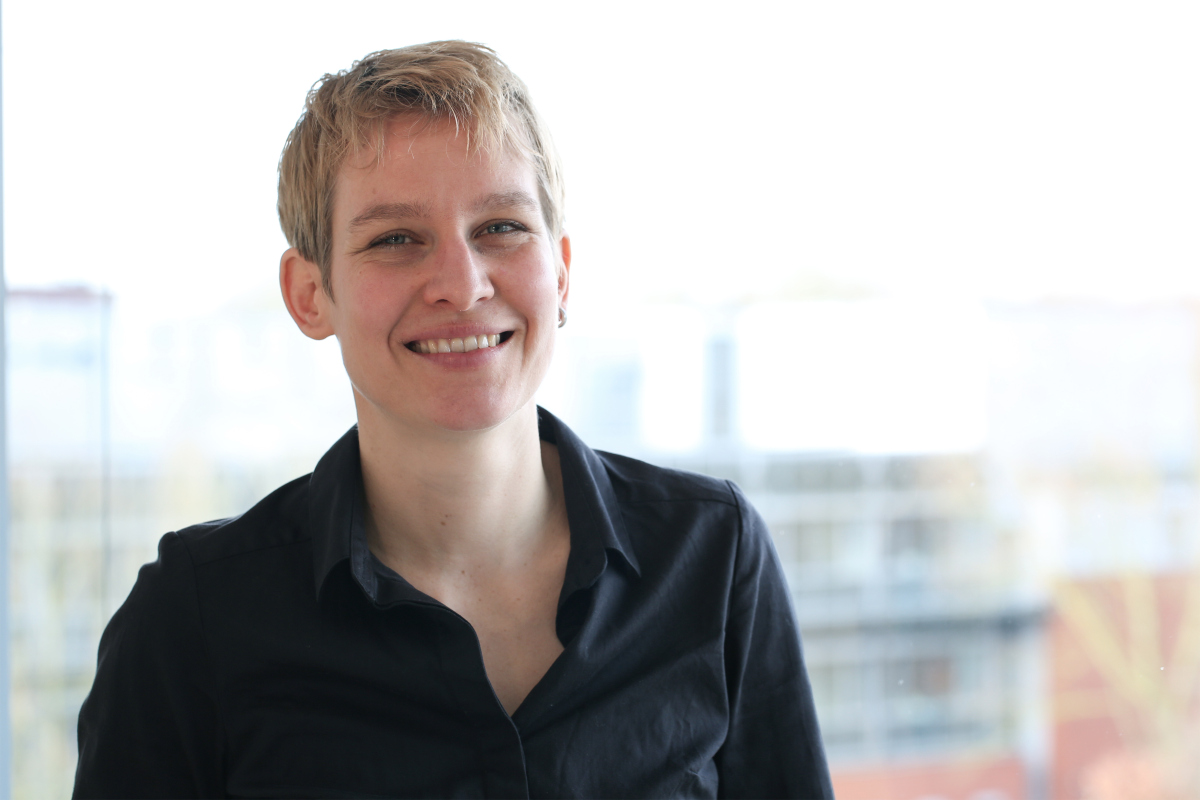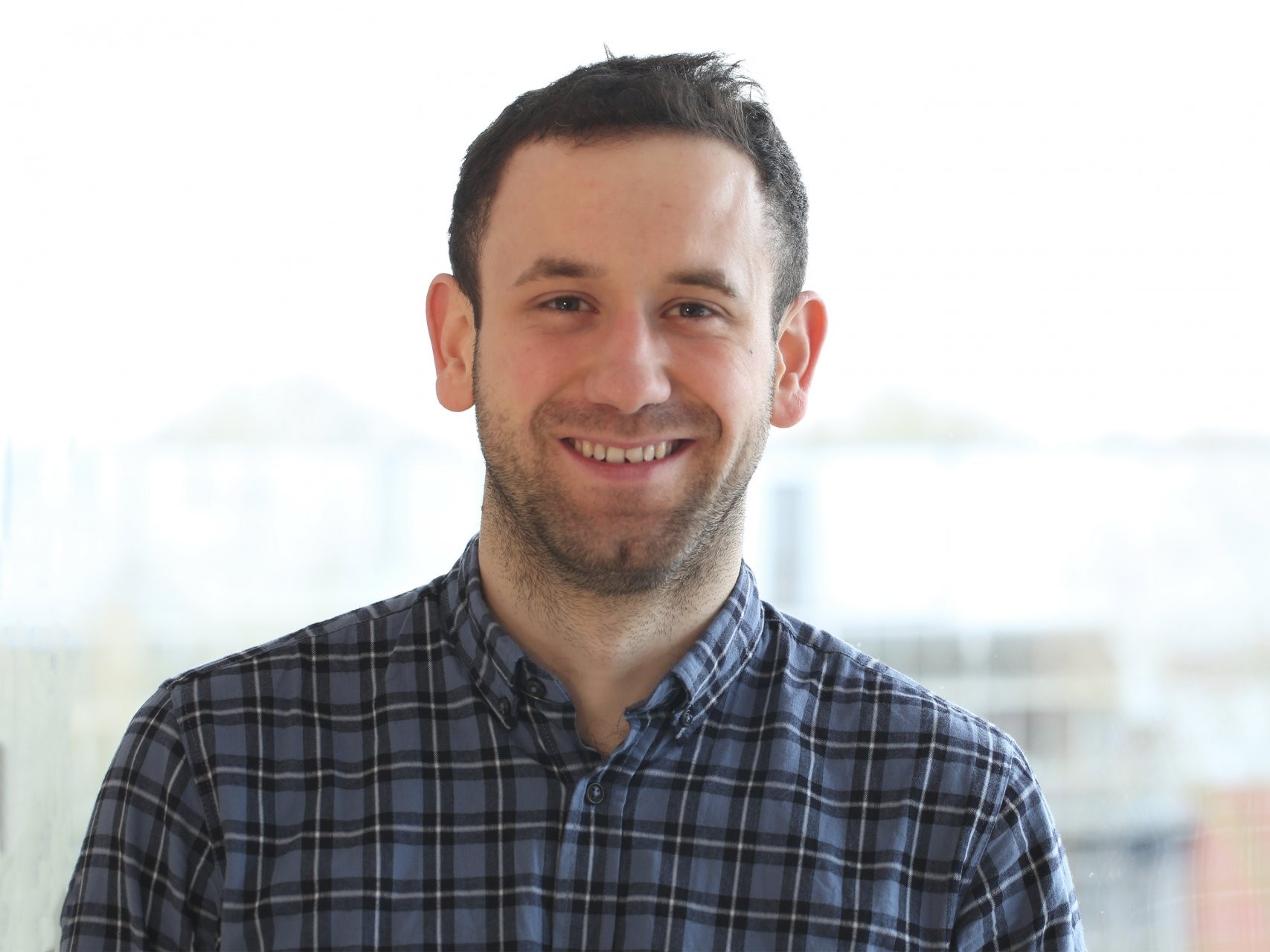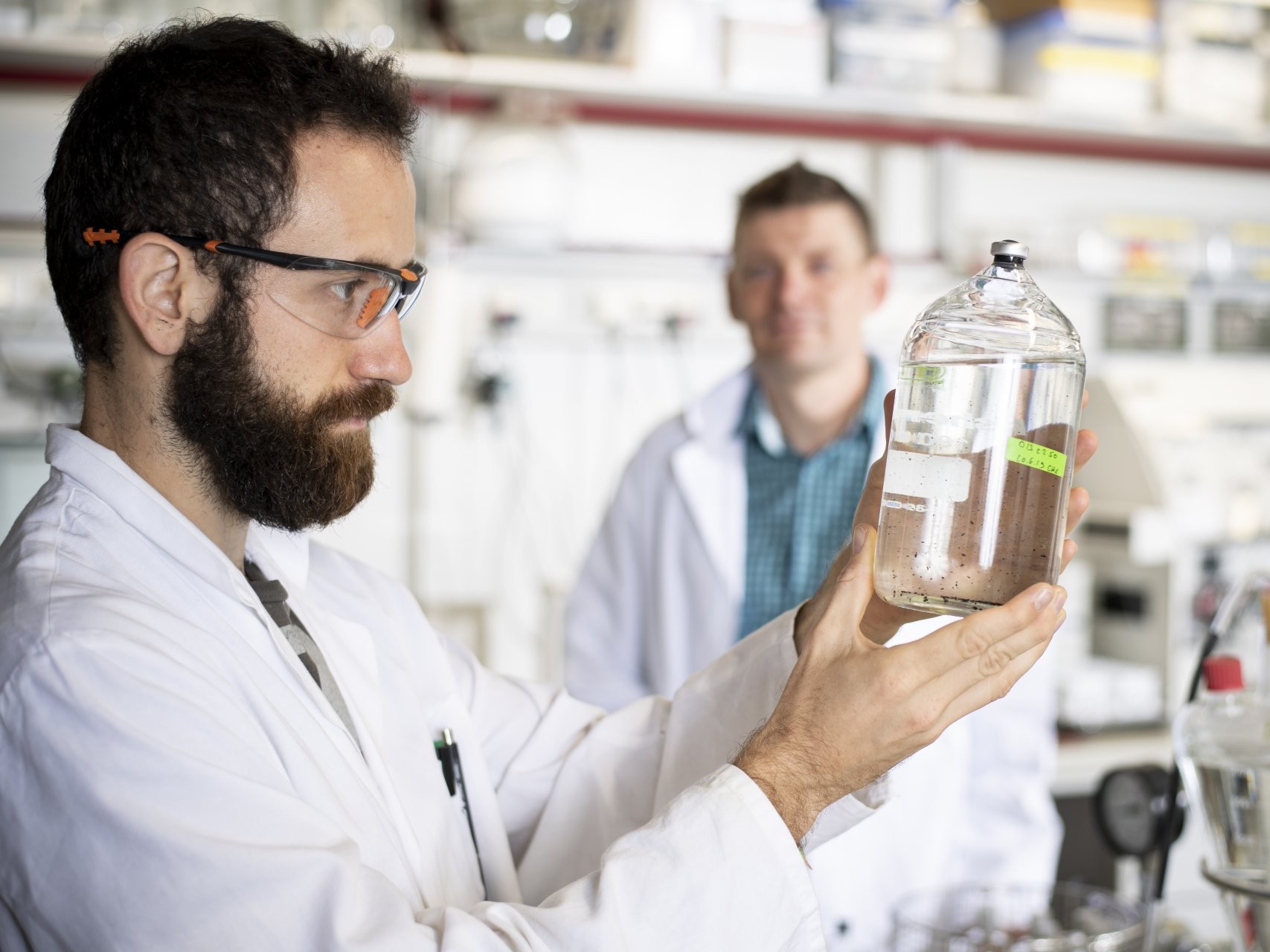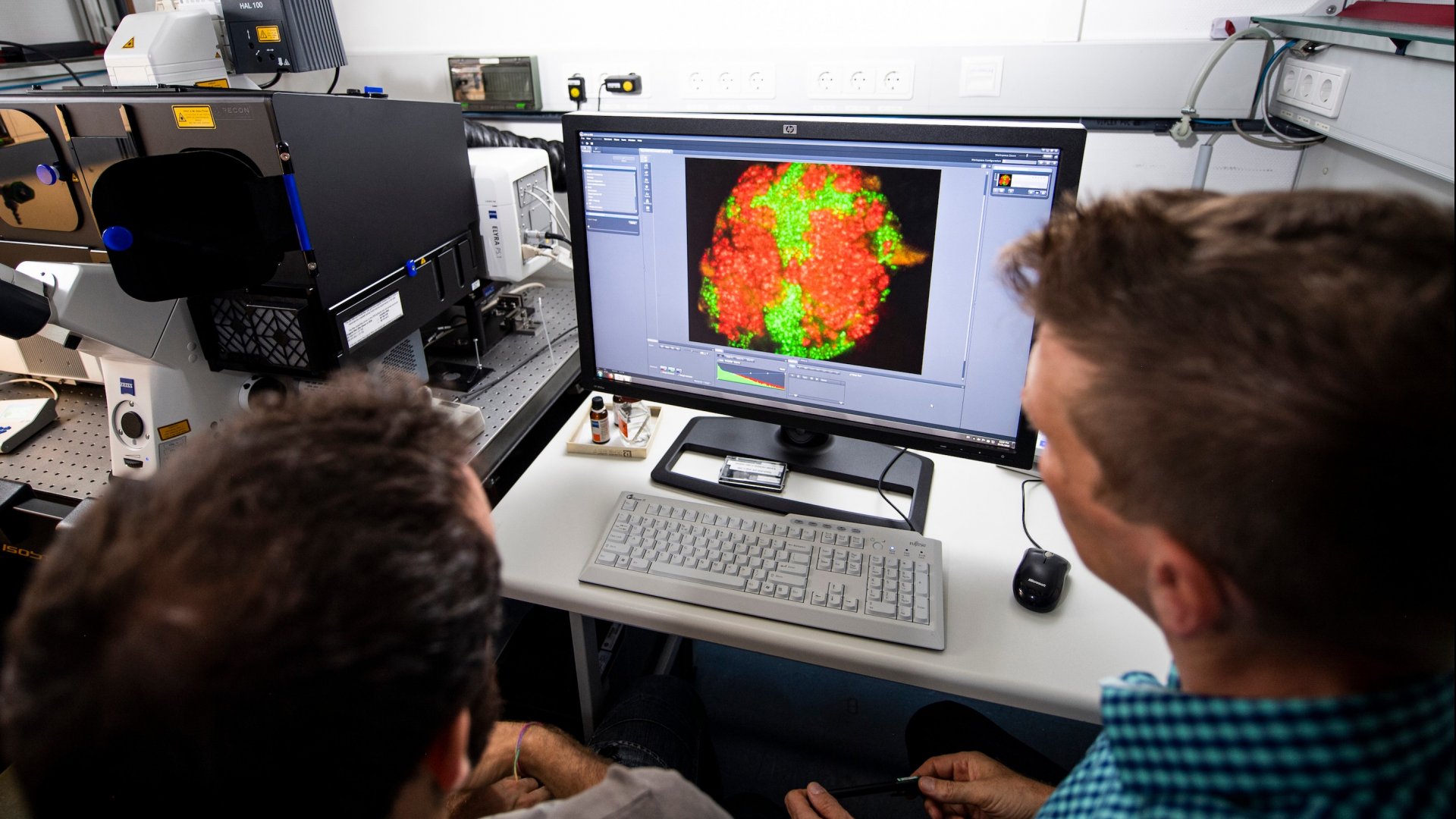- Press Office
- Press releases 2020
- Otto Hahn Medal for Rafael Laso Pérez
Otto Hahn Medal for Rafael Laso Pérez
In his thesis, Rafael Laso Pérez worked on a group of microbes called archaea. Archaea are different than bacteria and for a long time they have not been so deeply investigated.
Laso Pérez has contributed to unravel the role of archaea in the degradation of hydrocarbons in deep-sea sediments. He describes archaea with a novel pathway to degrade hydrocarbons in the absence of oxygen. The archaea using this mechanism are found in diverse hydrocarbon-rich environments like oil and gas seeps and deep reservoirs. This indicates a so far unexplored role of these organisms in hydrocarbon degradation and opens up for a lot of exciting future research.
“Especially important was the discovery of a new pathway to degrade butane. This has opened up a new field of research in archaea and could potentially be applied in the future to produce biofuels,” said Laso Pérez. In 2018, he graduated “With Distinction”.
The Otto Hahn Medal
This year marks the 42nd anniversary of the Otto Hahn Medal, bestowed by the Max Planck Society to honour its best junior scientists. The medal, endowed with 7,500 Euros, aims to motivate the winners to pursue a career in research.
Like very few others, Otto Hahn epitomised scientific excellence in his own life, alongside the struggle for progress on both a personal and a societal level. It was in his late twenties that Otto Hahn began his exceptionally fruitful cooperation with Lise Meitner, which led to the discovery of nuclear fission for which he received the Nobel Prize in Chemistry in 1944. As President he attended to the successful transformation of the Kaiser Wilhelm Society into the Max Planck Society starting in 1946.
“Rafael Laso Pérez has performed ground-breaking research on the role of archaea in the degradation of non-methane hydrocarbons”, said Prof. Dr. Antje Boetius, who supervised the thesis together with Dr. Gunter Wegener. “It includes the hallmark finding that methyl-coenzyme M reductases – an enzyme group that seemed to be restricted to the metabolism of C1-compounds – participate also in the anaerobic degradation of short-chain alkanes. The findings of his studies are intriguing for microbiology, biogeochemistry and especially also the evolution of archaea.”
With the Otto Hahn Medal, the Max Planck Society honours its best doctoral students. Especially gifted young scientists should be motivated to pursue a university or research career. “I am deeply honoured to receive the Otto Hahn Medal. This encourages me to continue learning, researching and being curious about the entire world,” Laso Pérez said. The fact that so little is known about archaea compared to bacteria was one of his main motivations during his PhD. “I loved to shed light on funky metabolisms and microorganisms.”
“This work would not have been possible without the support of my supervisors Gunter Wegener and Antje Boetius. I am very grateful for their support,“ Laso Pérez adds.
More about Rafael Laso Pèrez' research
Please direct your queries to:
Head of Press & Communications
MPI for Marine Microbiology
Celsiusstr. 1
D-28359 Bremen
Germany
|
Room: |
1345 |
|
Phone: |



